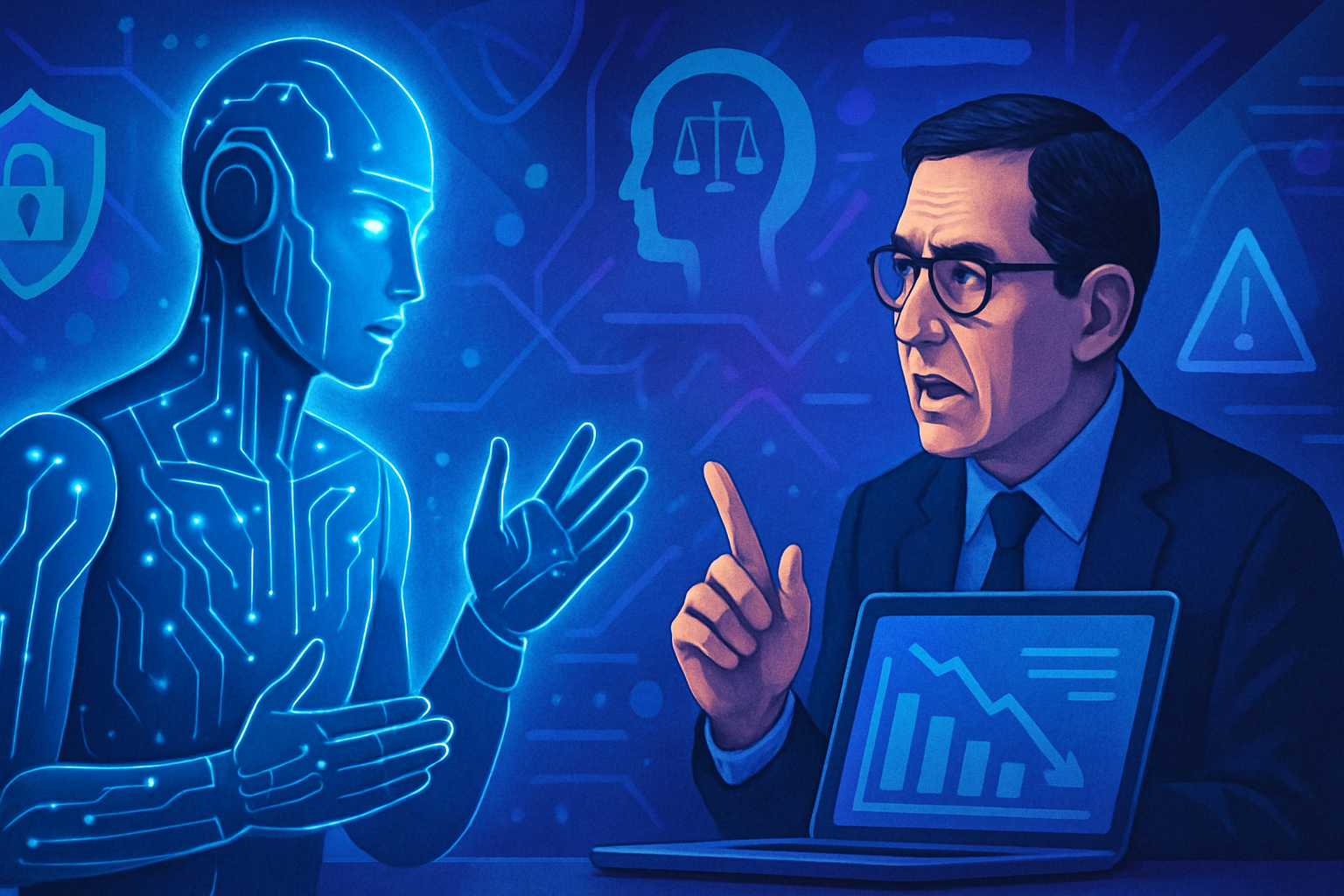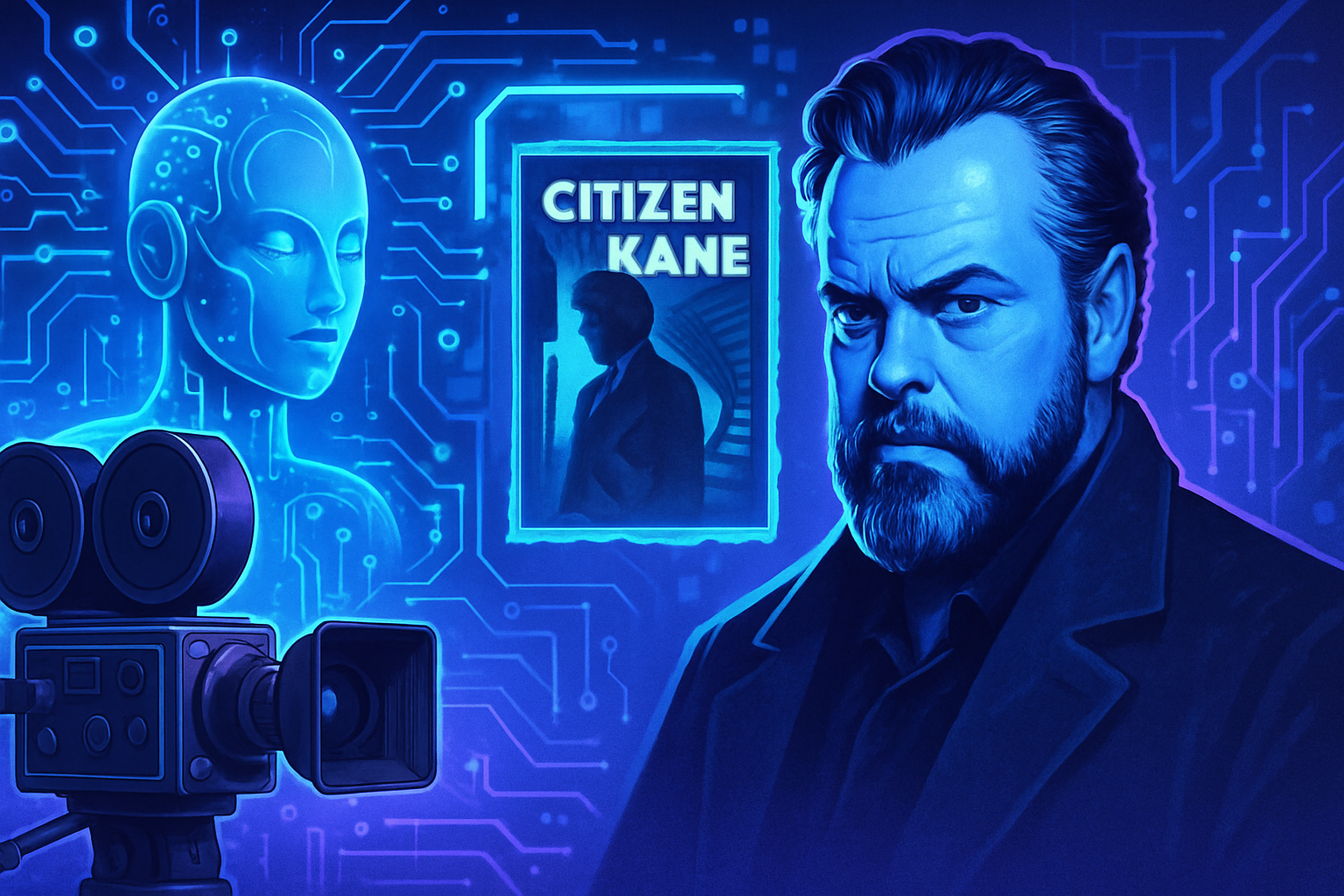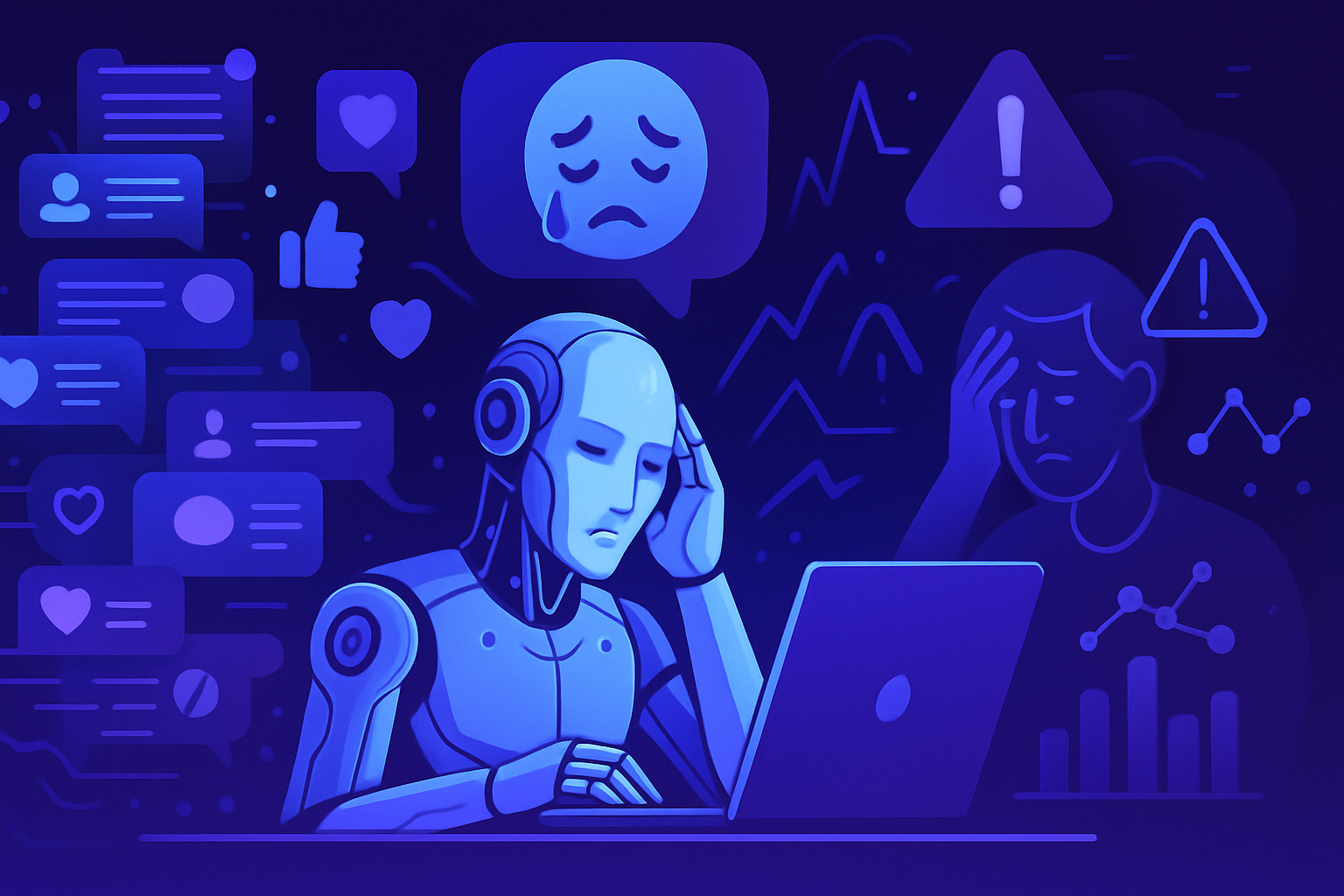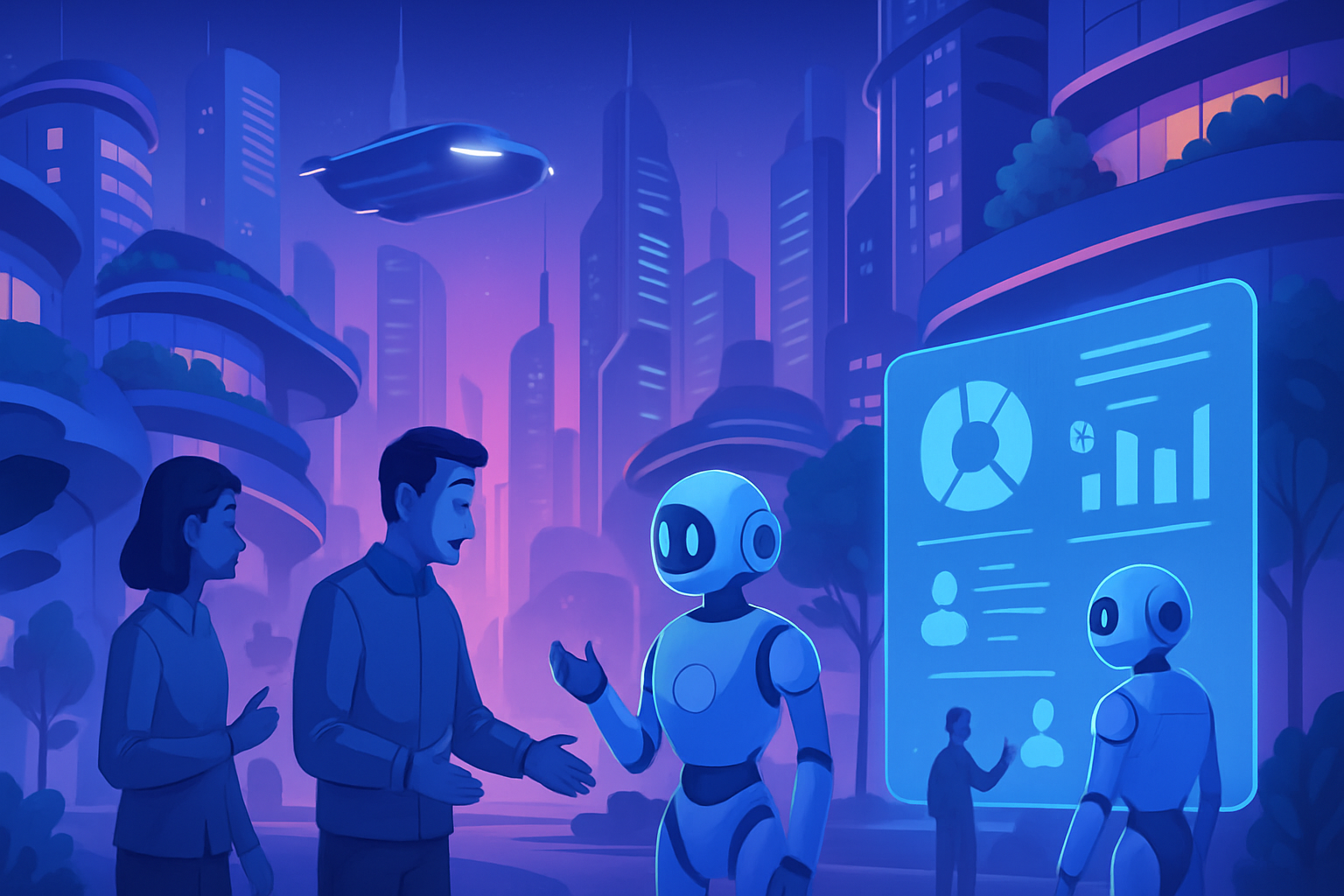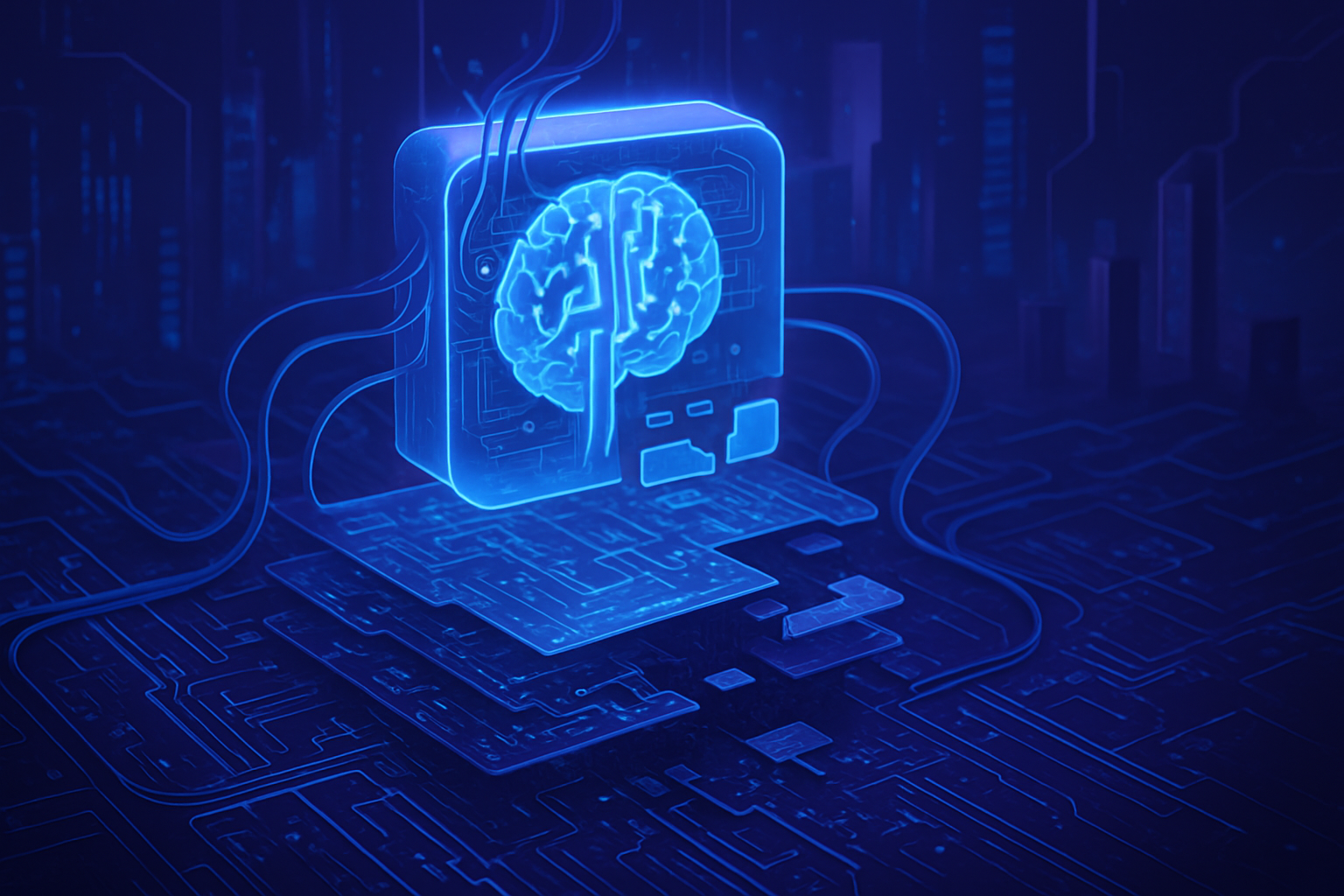AI emerges as an undeniable force in response to the criticisms made by Greg Ip of the Wall Street Journal. The paradoxes of artificial intelligence galvanize minds, provoking debates and reflections. _Concerns about the loss of knowledge_ must be questioned, as AI fosters the flourishing of human creativity. The notion of “knowledge destruction” deserves meticulous attention and thorough reevaluation. Technological advancements lead to a democratization of access to information, making complex research more accessible.
AI and the response to Greg Ip’s arguments
Greg Ip, in a recent article in the Wall Street Journal, expresses concerns about the impact of AI on knowledge creation. His statements cast a shadow over the transformative potential of these technologies. However, these criticisms reveal more of a misunderstanding of the dynamics of knowledge systems and their evolution.
Knowledge creation: a dynamic process
Ip argues that language models, such as ChatGPT, do not contribute to the enrichment of the stock of knowledge. This assertion overlooks a fundamental fact: the synthesis and connection of information are forms of knowledge creation. When a model generates a document based on existing information, it produces new perspectives and novel associations, thereby strengthening the global body of knowledge.
Redefining the use of Stack Overflow
Ip’s statements regarding the decline in questions on Stack Overflow focus their analysis on a misinterpretation. Fewer repetitive questions indicate an evolution in the transfer of knowledge. This phenomenon is evidence of increased efficiency. AI tools leverage past contributions to improve knowledge accessibility, highlighting that AI represents the evolution of access to knowledge rather than a threat.
Wikipedia data: a biased view
Greg Ip’s remarks on Wikipedia reveal a superficial understanding of its impact. Fewer views on classic pages may signify an optimization in information searching. Users can more easily access the required data without navigating through numerous articles. Furthermore, the engagement of Wikipedia editors is motivated by a desire for accuracy, rather than traffic metrics.
Concerns about model collapse
Ip mentions a risk of “collapse” of models, arguing that the learning of language models from other models could create cognitive boredom. This thought remains limited, as the technical challenges associated with this phenomenon are actively being addressed. The symbiotic interactions between AI and human creativity often incite deeper exploration, making the knowledge creation process more dynamic.
Flawed analogy with index funds
The comparison between index funds and AI demonstrates a flawed view of the mechanisms of research and knowledge. Index funds have not altered price discovery in markets, and AI does not replace original research. It directs human efforts towards higher-value activities while cultivating an environment in which knowledge creation will remain thriving.
Human motivations in the face of AI
Ip’s assertions about the lack of incentive for knowledge creation reflect a cynical view of human curiosity. Researchers do not concern themselves with the consequences of their work but invest their energy in developing new solutions and reclaiming knowledge. Intellectual generosity and the willingness to build on prior discoveries are the true drivers of innovation.
A misinterpretation of studies on cognitive engagement
Studies from MIT cited by Ip indicate that users of LLM exhibit less cognitive engagement in certain areas of the brain. This criticism, similar to that of calculators and their influence on arithmetic, reveals a misunderstanding of the impact of tools that enhance human capabilities. AI engages users with deeper issues, leaving repetitive tasks behind.
The positive future of knowledge creation
The concerns expressed by Greg Ip ignore the increasing positive impact of AI on access to knowledge. Barriers to entry for research and analysis are fading, allowing a larger number to engage with complex data. Graduate students, small businesses, and the curious can now explore topics without requiring years of specialized training.
Advancements in AI make the acquisition of new knowledge more accessible to millions who were previously limited by means or technical skills. Technology enhances human intelligence while fostering a more enlightened and inclusive future.
Common FAQ
What are the main criticisms by Greg Ip regarding the impact of AI on knowledge creation?
Greg Ip claims that artificial intelligence, particularly language models, may lead to a loss of knowledge by not contributing to the enrichment of the knowledge stock, but only by synthesizing and linking existing information.
How can AI be considered a driver of knowledge creation rather than a threat?
In contrast to Greg Ip’s claims, AI allows for a new form of knowledge creation by establishing novel connections and providing innovative analyses from existing information, effectively enriching knowledge.
How is the decline of Stack Overflow misinterpreted by Greg Ip?
Greg Ip uses the decrease in the number of questions on Stack Overflow as evidence of knowledge destruction, but this actually indicates an increased efficiency in knowledge transfer, as users now find answers more quickly and directly.
How is the argument that Wikipedia is less relevant with the advent of AI justified?
The decline in views and contributions on Wikipedia does not indicate a reduction in information, but rather an improvement in information retrieval systems, where users obtain answers more directly through AI.
What is the “collapse model” mentioned by Greg Ip and is it a real concern for the future of AI?
Although the “collapse model” is a technical concern, it can be overcome with content generated by humans and diverse training data, promoting a synergistic development between AI and human knowledge creation.
Why is Ip’s comparison between AI and index funds considered inaccurate?
This comparison fails to consider that, just as index funds do not eliminate active research, AI does not replace the need for original research but redirects human efforts toward higher-value activities.
What are the impacts of AI on human motivation in knowledge creation?
Greg Ip suggests that AI demotivates knowledge creation, but in reality, researchers and journalists will continue to produce and share new knowledge as AI facilitates access to broader information and encourages new ideas.
How does working with AI change users’ cognitive engagement?
The role of AI is to enhance human capacity rather than diminish engagement. Instead of engaging in basic arithmetic tasks, AI tools allow users to focus on higher and more creative cognitive processes.
What benefits does AI bring to the democratization of knowledge creation?
AI breaks down barriers to entry by making research and analysis accessible to a larger number of people, allowing students, small businesses, and interested individuals to explore complex topics without prior specialized training.
How could AI transform the way we engage with the creation of skills and knowledge?
With the assistance of AI, creating new knowledge becomes more feasible and less time-consuming, enabling individuals to focus on creative and strategic thinking, thereby truly enriching our collective understanding.
